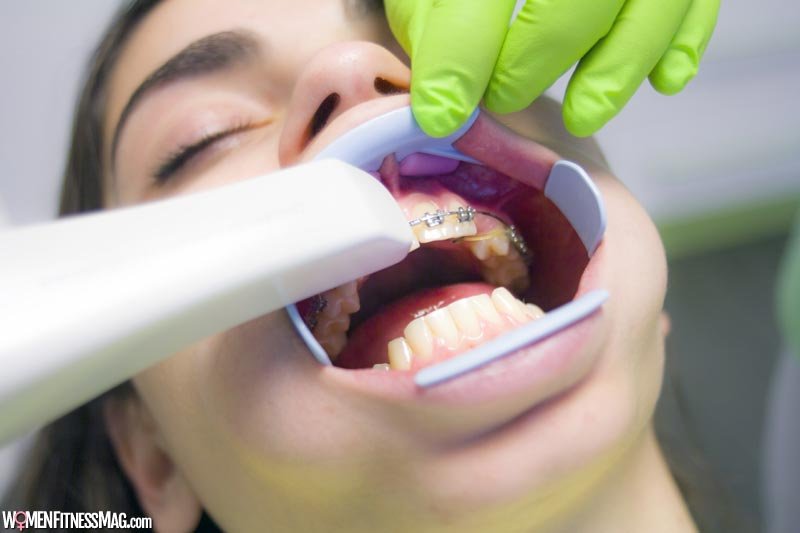Dental Bonding: What It Is & What to Expect : If you’re unhappy with your smile due to discolored, cracked, or chipped teeth, cosmetic dentistry helps.
As more people look to improve their teeth appearance, the industry is witnessing rapid growth, hitting $4.9 billion in 2022.
One of the most beneficial techniques is dental bonding. But. what is it, and what should you expect during the procedure?
This detailed guide explains all you need to know. Read on!
Understanding Dental Bonding
It is a cosmetic procedure to improve your tooth’s appearance. Dentists use an artificial resin to mimic your natural tooth color. The material adds volume and shape to your tooth, improving your smile and appearance.
Here’s what dental bonding does:
- Uses composite resins to fill dental cavities and repair decayed teeth
- Repairs cracked or chipped teeth
- Enhances discolored teeth appearance
- Closes gaps
- Improves tooth shape
- Works as an alternative to amalgam fillings
- Protects the part of exposed tooth’s enamel caused by gum receding
What to Expect Before Teeth Bonding
Before the procedure, your dentist will discuss your cosmetic dental goals with you. They use dental X-rays to evaluate your teeth and determine bonding eligibility.
If you have gum disease, tooth decay, or other severe oral health issues, you should treat them before getting this procedure.
If your dentist determines you’re qualified for the procedure, they’ll:
- Choose a Shade: This guides your service provider to pick a composite resin material to match your natural tooth color.
- Prepare Your Tooth: Your dentist roughens and applies a conditioning liquid on the tooth’s surface. This allows bonding with the composite resin.
- Apply the Composite Resin: They smoothen and shape the material to acquire the desired shape.
- Cure the Material: Your dentist hardens the composite resin with a special light, allowing it to stick to your tooth surface.
- Polish Your Tooth: The dental professional adjusts and polishes the material to match your natural teeth.
Recovery After Dental Bonding
This cosmetic dentistry has very little to no downtime, and you’re okay to resume your daily activities immediately after the procedure. Following the process, you need appropriate oral hygiene to keep your smile bright and healthy.
Use fluoride toothpaste and a toothbrush to brush your teeth twice daily. Consider regular dental cleanings and check-ups to maintain your smile. Other self-care tips to consider include:
- Avoid hard candy and food
- Don’t bite your nails
- Avoid tobacco, tea, and coffee for about two days following the procedure to prevent stains
Costs
While tooth bonding is a cheaper alternative than most tooth cosmetic procedures, there’s no one-size-fits price. Dental bonding costs depend on:
- Scope of Work: Your dental professional charges you based on the specific mouth area where they perform dental bonding. Prices vary depending on a patient’s personalized needs.
- Insurance Coverage: How much will your insurance cover for the procedure? This depends on whether your dental bonding is structural or cosmetic.
- Your Locality: Costs depend on your dentists’ location and their experience. During the initial consultation with your professional, ask them about the cost to get the actual price for your needs.
Essential FAQs
Do You Need Special Care for Your Teeth After Dental Bonding?
No, but you should follow appropriate dental practices like brushing and flossing your teeth twice daily. Consider regular cleanings and check-ups to maintain a long-lasting smile. Avoid habits such as biting hard foods and nails as the composite bonding resin can chip.
How Long Will Your Dental Bonding Last?
While composite bonding resin is durable, its lifespan depends on the number of treated teeth and your oral habits. Typically, it can last up to 10 years before you need replacement or retouching.
Does it have complications?
Dental bonding is safe for most patients and isn’t risky if your gums and teeth are in good health. If you have severe oral health issues, such as gum disease and extensive dental decay, treating them before choosing dental bonding is advisable.
Why Should You Consider Dental Bonding?
Tooth bonding is an excellent dental procedure to overcome a tooth imperfection or defect. If you have discolored, cracked, or decayed teeth, this cosmetic procedure is appropriate for you. It repairs other issues like gapped teeth.
How Should You Prepare
Dental bonding doesn’t need special preparation. However, before choosing the procedure, consult a professional to determine if you’re an appropriate candidate. The dental cosmetic treatment might not be right for you if you have adverse tooth decay or damage. This may require a crown or veneer.




